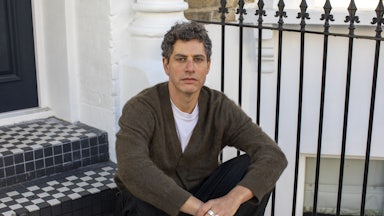On a Tuesday morning in March, Immigration and Customs Enforcement agents pulled over Alfredo “Lelo” Juarez Zeferino, who was driving his partner to her job at a tulip farm in rural Skagit County, Washington. When a plainclothes ICE officer approached his vehicle, Zeferino rolled down his window a few inches, he said, and asked if the man had a warrant. The agent responded by smashing Zeferino’s window, handcuffing him, and taking him to an unmarked warehouse. The warehouse happened to be one that Zeferino, who has been organizing with fellow farmworkers for well over a decade, had helped expose as a clandestine ICE holding facility back in 2022. From there, the 25-year-old was transferred to the Northwest ICE Processing Facility in Tacoma, Washington.
He was held there for months. After an immigration judge ruled that she didn’t have jurisdiction to issue a bond that would have allowed Zeferino to be released while he was awaiting trial, he applied for and was granted a voluntary departure in July. Now he’s back in Guerrero, Mexico, for the first time since he was a kid. The outpouring of support he received while in custody—including protests outside the facilities where he was held, and a letter from members of Washington state’s congressional delegation—is a testament to the ambition and bravery of his organizing work. Zeferino helped win statewide overtime pay, wage increases, and workplace protections against wildfire smoke and extreme heat. Throughout, he’s been fighting to change a draconian, exploitative immigration regime that has been supercharged by the Trump administration.
Edgar Franks—the political director of Familias Unidas por la Justicia, the independent farmworker union Zeferino helped found as a teenager—and others who have worked closely with Zeferino over the years believe that his arrest was politically motivated. The Department of Homeland Security denies this claim and Zeferino’s account of his arrest, contending both that the organizer failed to comply with law enforcement in March and defied a 2018 deportation order; Zeferino has said he was unaware that it had been issued. In May, his lawyers signed him onto a class-action lawsuit filed by the Northwest Immigrant Rights Project, alleging that judges with the Tacoma Immigration Court have consistently denied bond to immigrants over the last two years. The court granted just 3 percent of bond requests made in the fiscal year preceding September 2023—the lowest rate in the country. While the suit wasn’t able to keep Zeferino in the country, it could help the estimated hundreds still sitting in legal limbo at the processing facility where he was held.
Franks told me that Zeferino was wary of going into too much detail about conditions at the Tacoma facility while he was there. But Franks learned enough from him to paint a grim picture. The lights were kept on all day and night. It was cold. People didn’t get medications if they were sick and often wouldn’t receive dinner until the early hours of the morning. Other detainees told Franks that the guards were always yelling at people to urge them to sign on for voluntary departures. They were “trying to break people down mentally,” Franks explained. (ICE did not respond to a request for comment about these allegations.)
Franks met Zeferino when, as a kid, he volunteered to translate for fellow berry pickers between Spanish and his native Mixteco language. Franks said that his friend is in good spirits and adjusting to life back with his family in Guerrero. “He still has a sense of humor about everything,” Franks told me. “That makes us all feel good,” he added, at least in light of far worse alternatives—a reference to those sent to El Salvador’s sprawling, hellish Terrorism Confinement Center, or CECOT.
In the future, Zeferino may still be able to apply for legal status in the United States. In the meantime, the changes he fought for at the state and local level—from higher wages to state-mandated breaks when temperatures in the fields soar above 80 degrees Fahrenheit—are already keeping farmworkers safer on the job. The union he founded is empowering them to enforce those policies, fight for more, and defend themselves against both abusive bosses and the Trump administration’s war on working-class immigrants. “I have very limited options but I want everyone to know no matter where I end up,” Zeferino wrote in July, “I will continue fighting for justice along side all of you.”




